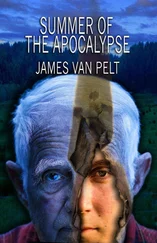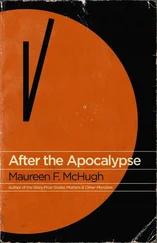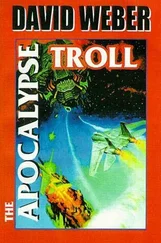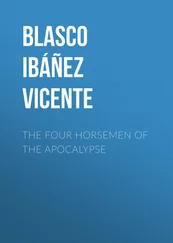The man was a poet. He’d informed Santiago of this one day as the cat sat on the man’s desk watching the fan blow gossamer strands of dust into the air. Santiago was not sure what this meant exactly, but apparently this was what the man did at his table in the evenings. He wrote poetry. The man said this apologetically, as if Santiago would have an opinion on how the shopkeeper should better spend his time. Then the man announced that when this was all gone—he waved his hands through the air at that point, and Santiago wasn’t sure if the man referred to his antique store or Pompei or the entire world—poetry would live on.
A few weeks later, during a particularly dreadful heat wave that made Santiago resort to panting like a dog and caused everyone in the outdoor market, especially the chocolatier, to be grumpy, the man explained to Santiago that poetry was a dance of words, a tapestry of images, and a handful of dreams. Santiago was still not sure he understood. But it didn’t matter. Poetry made the man happy, and that made Santiago happy.
Occasionally, when he was feeling bold or perhaps needy in the evenings, Santiago would wander through the open deck door and into the man’s quarters, where he would sleep carefully at the foot of the man’s chair. The man would look up and nod at the cat, one old warrior to the other, and then he’d return to writing in his little black notebook, which he carried with him during the day in the front pocket of his shirt.
Santiago never tried to jump on the man’s lap, for he was not a lap cat, after his experience of being squeezed so tightly as a kitten by the children in his first family that his lungs and head had hurt, and then being boxed around the ears routinely by the woman of the house for unknown transgressions. Besides, the man was clearly intent on his work and did not look like the sort to sit and hold a cat. When the shopkeeper went to bed, Santiago would retreat to the deck where he’d spend the night curled in an orange ball, his stubby tail tucked around his haunches for warmth.
Poetry will live on.
The man repeated this statement, almost to himself, when he removed paint from old furniture with careful strokes of the scraper; or when he limped slowly to the market on one leg shorter than the other; or when he put the money from the day’s transactions in the deposit bag to take to the bank.
Poetry will live on.
* * *
When Santiago came fully conscious that morning on the deck, he knew immediately that everything had changed. It was the start of his second autumn with the man and Santiago’s sixteenth year of life. Each morning now arrived as a bit of a surprise. Street cats rarely lived beyond their tenth or eleventh year. But he was no longer a street cat. He was a deck cat, a netherworld of in-between that likely bought him greater purchase on the land of the living.
The world had changed in ways that were immediately observable, and in ways that beat at the back of his subconscious, where his instincts lay in wait. Instincts that had kept him alive for so many years.
For one thing, he’d slept late, his old bones slightly more exhausted than the previous day, his sight and sense of smell the tiniest bit duller. The man had already descended the stairs to open the shop, and Santiago remained on the deck overlooking the piazza. Failing to wake when the man did was a sure sign, in Santiago’s mind, that his life force was nearly depleted. For another thing, all the other animals that normally occupied the streets seemed to be gone.
From his vantage point, Santiago could make out none of the cats or dogs at their usual posts on the piazza begging or thieving for food. And yet the humans went about their days as usual, greeting each other, chattering in the streets, setting up market stalls, and traversing the narrow cobblestones on bikes and scooters. Santiago paced back and forth on the deck searching the piazza for any sign of old Pete and Fritz—the Columbo twins who ran the piazza through a combination of big bone structure, egomania, and dirty dealing—or even Nervy the pigeon. The Piazza di Santa Caterina appeared completely bereft of other animals. Where could they possibly have gone?
But the last and most troubling thing was the scent of the air. Even to Santiago’s weakened nose, it smelled of fire and chemicals. And death.
There was definitely something wrong.
He padded down through the antique store and out onto the cobblestones, sniffing cautiously. He made his rounds to the dumpster behind the grocer, the teahouse, and the maze of stalls in the piazza, uncertain of the last time he’d visited some of his old haunts. When had all the other animals disappeared? Had they been gone for weeks while he lay sated on his deck, wallowing in his new life and contemplating the inevitability of death?
A rat he recognized scurried past. Ray, as he was known, was officially the biggest rat in this quarter of Pompei. He was too big for Santiago to consider taking on, and, with Ray’s reputation as a fierce fighter, was immune to the various pressures to which rats were subjected.
“Where is everyone?” Santiago asked in Furfar, the pidgin language of the streets.
Ray paused mid-scurry and eyed the cat warily. Santiago had no doubt the rat could easily take him down, and apparently the rat agreed because he suddenly got all puffed up and cocky. “Don’t know and don’t care. The eats are plenty good with me all on my own. Don’t even think of trying to move in on the chocolate lady or the butcher.” The chocolatier’s stall was always a favorite among the animals because the woman who ran it seemed to have coordination problems. She was forever dropping things.
“When did they all leave?” Santiago said.
“This morning,” Ray said and then made a threatening chitter and lunge at Santiago, who bolted—but not before he noticed the rat had chocolate spattered in his brown fur and remembered that Ray wasn’t all that bright.
A weak tremor rumbled through the cobblestones, and Santiago froze and arched his back, hissing embarrassingly at his own shadow. Ray skittered off through the stalls of the outdoor market, his round behind swaying back and forth over his long shiny tail. A dog started to bark wildly—a snow-white poodle with a pink bow in her topknot straining at her red leash, her owner struggling to keep it under control. After he had regained control of himself, Santiago peered around. Surely the humans would take action now.
But the marketplace remained as crowded as ever with locals and tourists alike. The skinny grocer with the red nose, who took sips from his flask over the course of the day, bustled among his fruits and vegetables. The plump bread ladies, who liked to give Santiago the broom if he sat too close to their stall, bullied people into purchasing sugar-covered pastries and loaves of golden bread. Their braying voices carried all the way across the piazza. The jeweler haggled with a pair of tourists, and the chocolate fountain bubbled as it had every day before.
Santiago did a more thorough tour of all the usual places where animals congregated and found only the old, infirm, very young, and stupid remained.
The faint rumble beneath his paws came again, like thunder in an underground cavern far away.
Santiago had to save the old man. He trotted back to the antique store as fast as his tired paws would take him. The man sat at his desk with the radio on. Santiago leapt up onto the desk, a move that was costing his brittle body more and more each day. The man flipped off his radio, an ancient brown box of a thing with a dial and a big cream grating for a speaker.
“Good morning, Santiago. Stromboli had a particularly large explosion this morning. I almost think I can smell it from here. They say one of the volcanoes in Iceland is erupting as well. I can’t remember the name. No cream this morning, I’m afraid. I haven’t made it to the market yet. I have an important project I’m working on. It might be my last.”
Читать дальше












